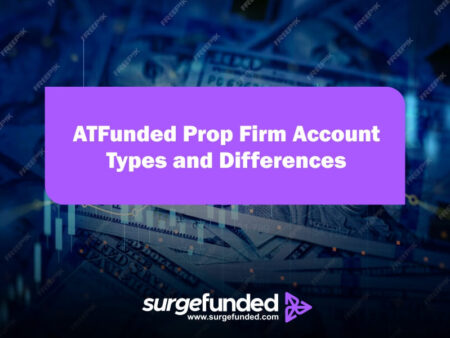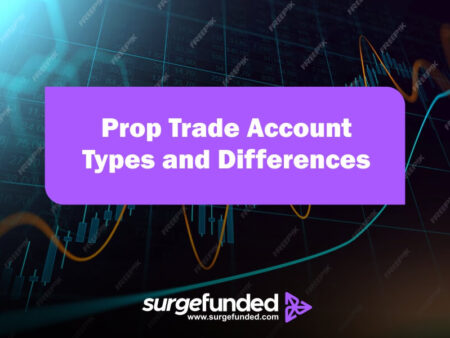Summit strike capital account types and differences provide traders with an accessible and adaptable route to becoming profitable traders. Summit Strike Capital is a proprietary trading firm that gives traders the chance to participate in simulated trading competitions. In contrast to conventional prop firms, Summit Strike Capital only uses simulated accounts; traders trade on demo accounts rather than live markets. This article will examine Summit strike capital account types and differences.
Summit Strike Capital Account Types and Differences
Two main account types are available on Summit Strike Capital: Instant and Standard. Since both account types are intended for simulated trading, traders do not use actual funds when trading.
Standard Account
- Funding Possibilities: Funding possibilities for the standard account range from $10,000 to $200,000. In order for traders to be deemed funding, they must first satisfy predetermined profit targets as part of a two-step review procedure.
- Profit Objectives: A 10% profit objective is needed in the first phase, and a 5% goal is needed in the second. After funding, traders are free to trade without regard to predetermined profit margins.
- Profit Sharing: For the first withdrawal, the profit-sharing model is 75%; for the second, it is 80%; for the third, it is 85%; and for all others, it is 90%.
- Fees: Standard accounts include fees that start at $89 for a $10,000 account and go up to $999 for a $200,000 account.
Instant Account
- Funding Possibilities: Up to $100,000 in funding possibilities are available for the instant account. There is no evaluation period before traders may begin trading.
- Sharing of Profits: At 50% for the first withdrawal, the profit-sharing model for instant accounts rises to 55% for the second, 60% for the third, and 70% for all subsequent withdrawals.
- Fees: Instant accounts have higher fees; a $10,000 account will cost $300, while a $100,000 account will cost $1,750.
Variations Among Account Types
The review procedure, profit-sharing plan, and fees are the main distinctions between Summit Strike Capital standard and instant accounts.
Evaluation Process
- Standard Account: Before traders may access a funded account, they must complete a two-step review process.
- Instant Account: Enables traders to begin trading right away without having to go through an assessment process.
Sharing of Profits
- Standard Account: Provides a greater percentage of profit-sharing, up to 90% following the third withdrawal.
- For further withdrawals, the instant account has a reduced profit-sharing cap of 70%.
Fees
- Standard Account: Fees start at $89 and are often less expensive than instant accounts.
- Instant Account: More costly, with $300 in fees to start.
Implications of Summit Strike Capital Account Types
Summit Strike Capital account types and differences have several implications for traders:
Risk Management
- Simulated Trading: Traders do not run the danger of losing actual money because they only participate in simulated trading. They do not, however, acquire expertise in handling actual financial risk.
- Limited Real-World Experience: Traders are not exposed to the financial and psychological strains that come with live trading.
Profit Potential
- Profit Sharing: Although the large profit-sharing percentages are alluring, traders are unable to profit from real market moves because there is no actual trading.
- Limited Capital Growth: Traders cannot fully benefit from the capital growth potential that comes with employing profitable trading tactics in actual markets if live trading is not available.
Educational Value
- Absence of Real-World Experience: Although simulated trading can shed light on how well a strategy works, it does not offer the real-world experience that is essential for traders in development.
- Lack of Educational Materials: For novices wishing to advance their trading abilities, Summit Strike Capital’s lack of educational materials can be a major disadvantage.
Types of Global Prop Trading Accounts
Prop trading firms all over the world provide a variety of account types to suit the demands and skill levels of traders. Here is a summary of typical procedures:
Accounts of Evaluation
- Multi-Step Challenges: Before granting funded accounts, several firms use multi-step evaluation procedures to gauge traders’ proficiency.
- Instant Funding: For seasoned traders, certain firms provide instant funding options, however these are frequently more expensive.
Scaling Plans
- Capital Growth: Scaling plans are frequently offered by traditional prop firms, enabling profitable traders to gradually raise their trading capital.
- Performance-Based: Traders’ performance benchmarks are usually the basis for these programs.
Asset Classes
- Multi-Asset Firms: A few prop firms provide access to a variety of asset classes, such as equities, indices, commodities, cryptocurrencies, forex, and stocks.
- Forex Specialization: Some give certain guidelines and tactics designed for the currency market.
In conclusion
The standard and instant account types offered by Summit Strike Capital give traders the chance to participate in simulated trading activities. These accounts lack the practical experience and opportunity for financial gain that come with live trading, despite offering a low-risk setting and lucrative profit-sharing plans.
Firms like Summit Strike Capital will have to adjust to shifting trader preferences and regulatory restrictions as the prop trading market develops further. Assessing the account types, business model, and overall trading experience provided is crucial for traders thinking about Summit Strike Capital or any other prop firm. Knowing these elements will enable traders to choose the firm that most closely matches their trading objectives and risk tolerance.
In conclusion, even though Summit Strike Capital account types offer benefits like quick account setup and flexible profit-sharing plans, their shortcomings in offering practical trading experience and financial growth opportunities underscore the significance of giving prop trading firms considerable thought.
Frequently Asked Questions
What Are The Different Summit Strike Capital Account Types?
- Standard Account: A two-step evaluation process with funding options ranging from $10,000 to $200,000.
- Instant Account: Allows traders to start trading immediately without an evaluation phase, with funding options up to $100,000.
What Are The Fees Associated With Each Summit Strike Capital Account Type?
- Standard Account Fees: Range from $89 for a $10,000 account to $999 for a $200,000 account.
- Instant Account Fees: Range from $300 for a $10,000 account to $1,750 for a $100,000 account.
Are There Any Scaling Plans Available For Traders?
- Yes, Summit Strike Capital offers a scaling plan that allows traders to grow their accounts up to $2,000,000 by achieving a 12% profit within a three-month period.


















